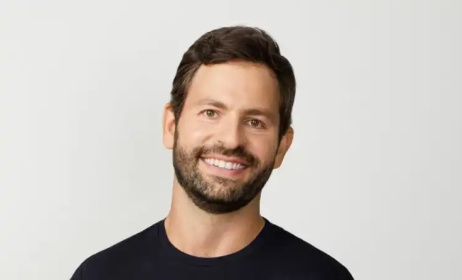SoundCloud under fire over AI policy confusion – CEO responds
SoundCloud found itself at the centre of an online backlash over the weekend after critics highlighted a controversial update to the platform’s Terms and Conditions regarding AI training.
 SoundCloud CEO Eliah Seton.
SoundCloud CEO Eliah Seton.
The policy update, which was added in February 2024, stated: “You explicitly agree that your Content may be used to inform, train, develop or serve as input to artificial intelligence or machine intelligence technologies or services as part of and for providing the services.”
The company’s choice of wording drew widespread criticism from artists and leading AI experts, including Ed Newton-Rex, founder of the non-profit organisation Fairly Trained.
According to Music Business Worldwide, music rights holders are already pursuing legal action against several generative AI platforms for alleged large-scale copyright infringement. Meanwhile, companies like OpenAI are lobbying political leaders worldwide to relax existing laws so tech firms can train their models on copyrighted material without facing legal consequences.
Over the weekend, one of those political leaders, US President Donald Trump, dismissed the most senior copyright-related public servant in the United States. This came after she published a report suggesting it may not be legally sound for every song ever recorded to be consumed by AI technologies developed by figures like Sam Altman and Elon Musk.
SoundCloud’s quietly implemented update in February 2024 occurred well before the current industry-wide uproar over AI training and copyright reached its peak.
However, the contentious phrasing in the update surprised many who had seen SoundCloud previously commit to ethical AI practices, including agreements made with Fadr, Soundful, and Voice-Swap in the past year.
The update also raised alarms among music rights holders, who fear that other streaming giants like Spotify or Apple Music might adopt similar policies.
On 14 May, SoundCloud CEO Eliah Seton addressed the controversy, describing it as a case of “confusion” caused by ambiguous language in the company’s terms of service regarding AI.
Most importantly, Seton confirmed that SoundCloud is now revising the problematic section of its Terms of Use.
Seton said the new language will “make it absolutely clear” that SoundCloud “will not” use artists’ content to “train generative AI models that aim to replicate or synthesise your voice, music, or likeness”.
He acknowledged that the previous version “was too broad and wasn’t clear enough”.
Seton added that if future generative AI technologies offer meaningful opportunities for SoundCloud artists, and require training on their content, the company “may make this opportunity available to [its] human artists with their explicit consent, via an opt-in mechanism.”
Furthermore, SoundCloud is making what Seton described as a “formal commitment” that “any use of AI on SoundCloud will be based on consent, transparency, and artist control.”
The key revision to the Terms of Service is the removal of the following contentious sentence:
“In the absence of a separate agreement that states otherwise, You explicitly agree that your Content may be used to inform, train, develop or serve as input to artificial intelligence or machine intelligence technologies or services as part of and for providing the services.”
It is being replaced with: “We will not use Your Content to train generative AI models that aim to replicate or synthesise your voice, music, or likeness without your explicit consent, which must be affirmatively provided through an opt-in mechanism.”
According to Seton, these changes will be reflected on the platform “in the coming weeks”.
Critics of the previous policy may view the introduction of an “opt-in mechanism” as a significant win.
In an op-ed published this week by Music Business Worldwide, Ed Newton-Rex wrote: “Opt-out mechanisms for generative AI training are hugely unfair to musicians, for a heap of reasons I’ve talked about before.”
Seton’s remarks were delivered in an open letter to SoundCloud artists, where he stated unequivocally: “AI should support artists, not replace them. Any use of these tools on SoundCloud will continue to reflect that.”
He concluded: “AI is going to be a part of the changing landscape of music. It brings new opportunities, but also very real challenges. That’s why our approach will always be guided by a single principle: artist-first.”
Read Seton’s letter in full here.





























Comments
Log in or register to post comments